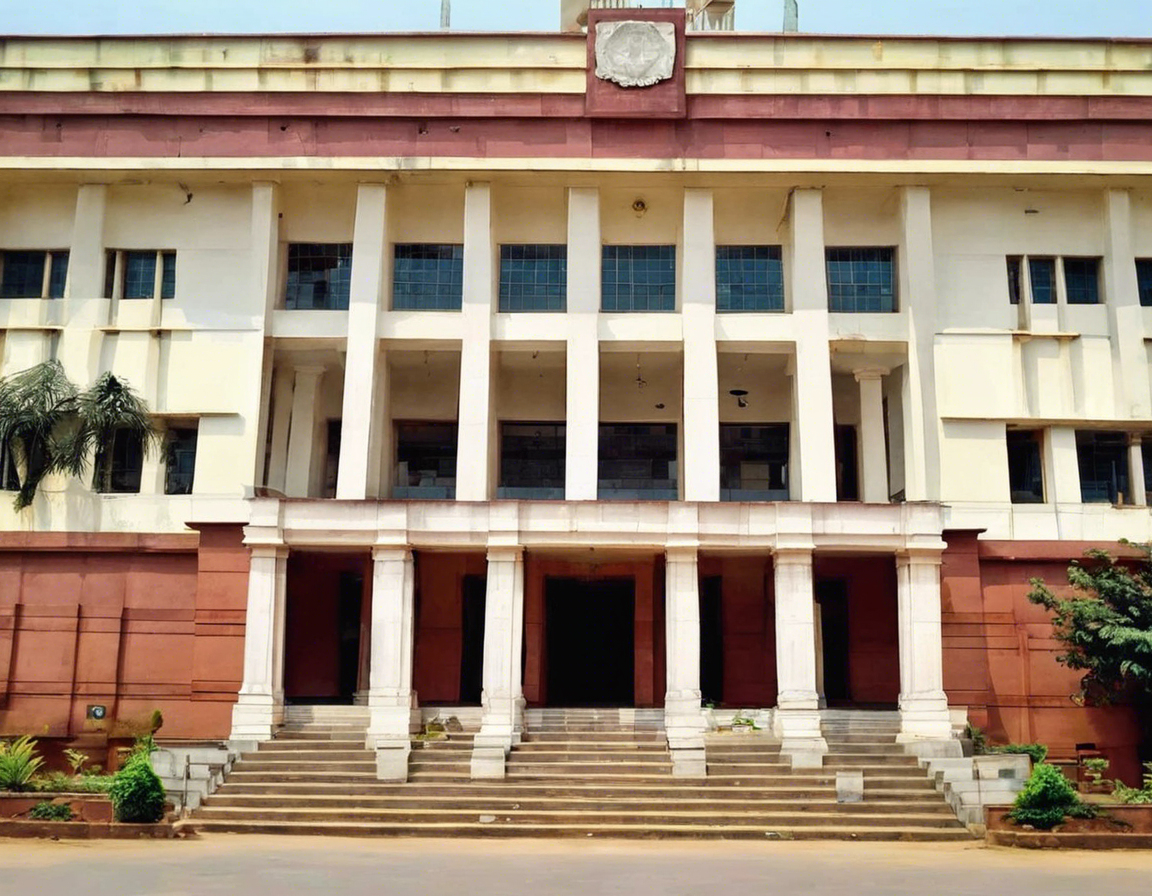Introduction
Established on 1st November 2000 by the President of India, the High Court of Chhattisgarh is situated in Bilaspur, Chhattisgarh, India. The High Court serves as the principal civil court of appeal and has jurisdiction over the state of Chhattisgarh. It holds a significant position in the judicial system of the state and plays a crucial role in upholding justice and the rule of law. This article serves as a comprehensive guide to understanding the structure, functions, and significance of the High Court of Chhattisgarh.
History
The creation of the Chhattisgarh High Court was a historic moment for the state, as it marked the establishment of a separate high court for Chhattisgarh post its separation from Madhya Pradesh. The High Court of Chhattisgarh was inaugurated on 1st November 2000 by the then President of India, Shri K.R. Narayanan. Prior to the establishment of the High Court of Chhattisgarh, the region was under the jurisdiction of the Madhya Pradesh High Court.
Jurisdiction
The High Court of Chhattisgarh has jurisdiction over the state of Chhattisgarh, which includes various districts and regions within the state. It serves as the highest judicial authority in the state and hears appeals from lower courts and tribunals within its jurisdiction. The High Court has the power to interpret the laws, including constitutional matters, and plays a vital role in ensuring justice and protecting the rights of the citizens.
Structure
The High Court of Chhattisgarh is housed in a magnificent building in Bilaspur, which is equipped with modern amenities and facilities to facilitate the dispensation of justice. The High Court complex consists of courtrooms, chambers for judges, administrative offices, libraries, and other essential facilities to support the functioning of the court. The architectural design of the High Court building reflects the rich heritage and cultural identity of the region.
Functions
The High Court of Chhattisgarh performs a wide range of functions to ensure the effective administration of justice in the state. Some of the key functions of the High Court include:
- Adjudication: The High Court hears appeals and petitions filed before it and delivers judgments on various legal matters.
- Interpretation of Laws: The High Court interprets laws, including constitutional provisions, to provide clarity on legal issues and disputes.
- Judicial Review: The High Court conducts judicial reviews to ensure that the actions of government authorities are within the scope of their legal powers.
- Protection of Rights: The High Court safeguards the fundamental rights of citizens and ensures that justice is accessible to all.
Significance
The High Court of Chhattisgarh holds immense significance in the state’s judicial system and the overall legal framework of the country. Some of the key aspects that highlight the significance of the High Court include:
- Dispensation of Justice: The High Court plays a vital role in the dispensation of justice and upholding the rule of law in the state.
- Legal Precedents: The judgments and decisions of the High Court serve as legal precedents that influence other courts and legal proceedings.
- Protection of Rights: The High Court protects the rights and liberties of individuals and ensures that the constitutional principles are upheld.
- Judicial Independence: The High Court signifies judicial independence and acts as a check on the actions of the executive and legislative branches of the government.
FAQs (Frequently Asked Questions)
1. What is the territorial jurisdiction of the High Court of Chhattisgarh?
– The High Court of Chhattisgarh has jurisdiction over the entire state of Chhattisgarh.
2. How many judges are there in the High Court of Chhattisgarh?
– The sanctioned strength of judges in the High Court of Chhattisgarh is determined by the government and may vary from time to time.
3. Can I directly approach the High Court of Chhattisgarh with a legal matter?
– In most cases, individuals are required to approach lower courts or tribunals first before filing an appeal in the High Court.
4. How are judges appointed to the High Court of Chhattisgarh?
– Judges of the High Court are appointed by the President of India based on recommendations from the Chief Justice of India and the Governor of the state.
5. What types of cases does the High Court of Chhattisgarh hear?
– The High Court of Chhattisgarh hears a wide range of cases, including civil, criminal, constitutional, and administrative matters.
In conclusion, the High Court of Chhattisgarh stands as a pillar of justice and upholds the constitutional principles in the state. Its role in ensuring the rule of law, protecting rights, and providing access to justice is paramount in the legal landscape of Chhattisgarh. Understanding the structure, functions, and significance of the High Court is essential to appreciate its critical role in safeguarding the principles of justice and democracy.
